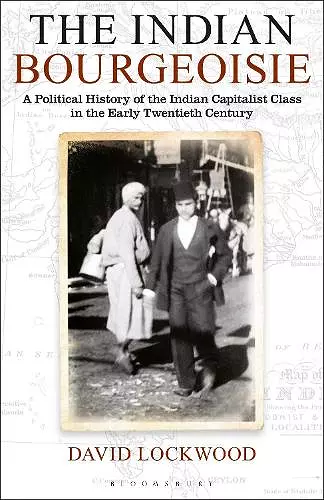The Indian Bourgeoisie
A Political History of the Indian Capitalist Class in the Early Twentieth Century
Format:Hardback
Publisher:Bloomsbury Publishing PLC
Published:20th Jun '12
Currently unavailable, and unfortunately no date known when it will be back

The complex and hard-fought movement for political freedom in India coincided with the rise of a wealthy capitalist class of Indian industrialists who had profited under British rule. By 1947, these prominent businessmen had forged a partnership with the socialist-led Indian National Congress, and supported Jawaharlal Nehru's implementation of a centrally-planned economy. In this political history of modern India, David Lockwood traces the roots of this capitalist class, concentrated in Bombay, Calcutta and the west Bengal coal mining region, and examines British economic policy in the nineteenth century. Indian capitalists, such as J.R.D Tata of Tata Steel, established powerful relationships with domestic governments throughout the period, holding indigenous industrial conferences and supporting the swadeshi movement which aimed to promote Indian-manufactured goods. The Indian Bourgeoisie is a unique and important contribution to the lively debate on the role of India's capitalists during the Raj and throughout the early years of independence.
'It is very surprising that this exciting topic has not received greater academic and research attention in the past, and Professor Lockwood is to be warmly commended for identifying this peculiar gap in the literature. It is a most important thread in the story of the invention of modern India. Furthermore, the topic is becoming increasingly important as economic globalization forces scholars to explore the meaning of a world of separate nationalities, the processes by which they were created and the imperatives driving the outcome. The Indian Bourgeoisie shows the tormented process through which Indian business slowly separated itself from its British colleagues and came to the extraordinary decision (for such a conservative social group) to embrace the revolutionary cause of creating a separate state and rejecting its close association with the British Empire. The story involves multiple and changing tensions (through a tumultuous period in British history) between Indian business, the Raj, the British government, British business and the movement for Indian independence. Professor Lockwood is masterly in telling this complex story. The text is clear and vivid. Along with his earlier account of Tsarist Russia, this book could well launch a genre for the history of business classes in many different countries allowing broader generalizations on the advent of capitalism and its political and sociological implications. -Nigel Harris, Emeritus Professor of the Economics of the City, University College London
ISBN: 9781848854338
Dimensions: 218mm x 144mm x 34mm
Weight: 545g
328 pages